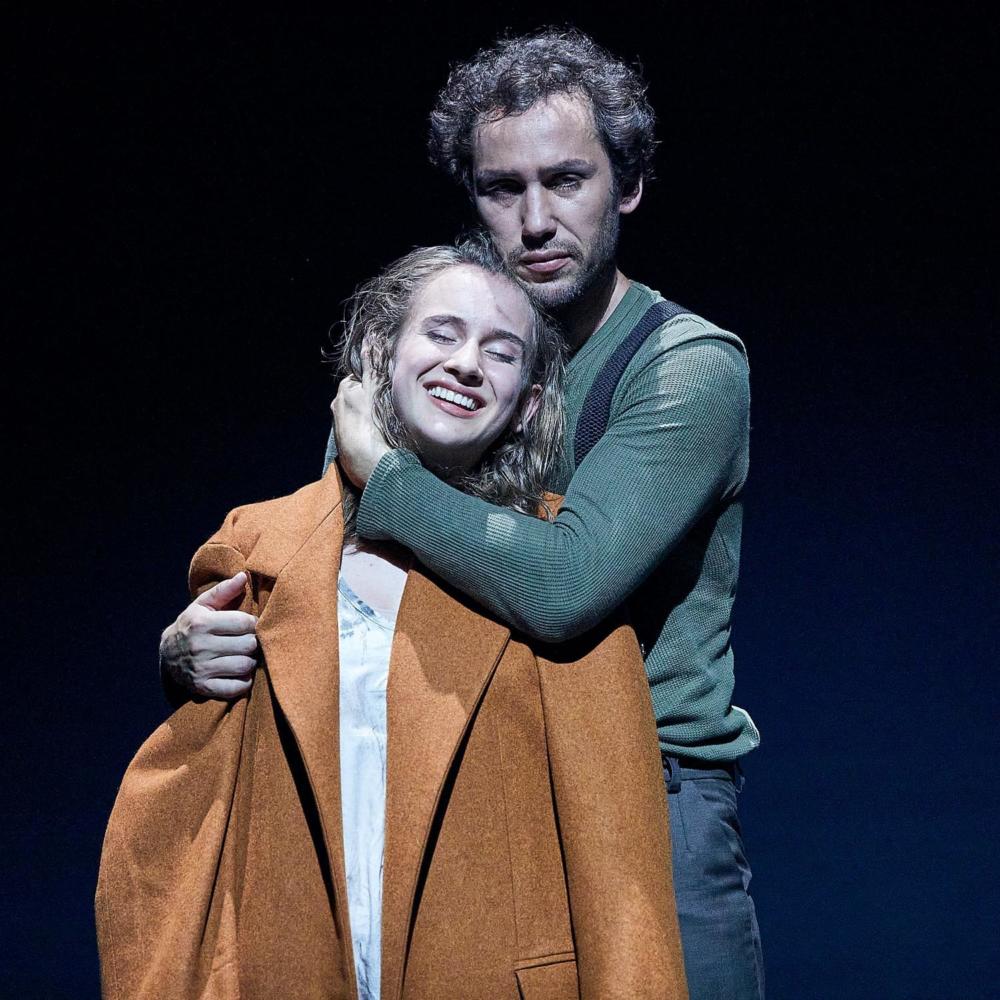Faust is getting younger
The Goetheanum Stage and everyone involved in the new production of Goethe’s Faust 1 & 2 have made it possible that despite restrictions due to Coronavirus three performances could take place at the Goetheanum in July, each with an audience of around 400 – a certainly unusual, if not unique, achievement in Europe at this time.
Following the uncertainty in May, stage director Stefan decided, as soon as the first easing of the lockdown was announced, that “We are going to play!” The ensemble had taken the same approach all along: in individual rehearsals and with special shifts, the 70 ensemble members on and off the stage worked towards this goal. On 10 July the premiere could finally go ahead!
For the first time, the Goetheanum is showing a production of Faust 1 & 2 that has been reduced to nine hours; for the first time the role of Mephisto is split between three actors and one eurythmist; for the first time a speech choir of 30 voices is seen on stage; for the first time the union of Faust and Helena, in ancient and medieval times, is integrated with music by Elmar Lampson. And: for the first time since Marie Steiner a woman is in charge of the production – Andrea Pfaehler, with Eduardo Torres directing the eurythmy.
Affirmation
Christian Morgenstern’s words “Love what is evil until it be good”, chosen by Andrea Pfaehler as the leitmotif of this production, permeated all rehearsals and is also tangible on stage. “I have known Faust for 30 years, but only now have I understood that heaven is already present in the prison cell,” said an experienced eurythmist.
As part of the production’s integrative approach, the performances were embedded in programmes presented by individual Sections of the School of Spiritual Science at the Goetheanum, addressing questions such as humanity in medicine today, new ways of dealing with property and what kind of culture is needed to help us become more human. While these are topical questions today and anthroposophy can contribute to answering them, Goethe’s Faust at the Goetheanum certainly also belongs to our time.
The next performance on the second to last weekend in October will probably go ahead with a full audience of 1000.
Friedrich Nietzsche, who in Beyond Good and Evil reflected much on the dramatic arts, referred to childhood as a ‘holy affirmation’. This affirmation informs Andrea Pfaehler’s approach in that she tries to leave the actors free to find their authenticity. The same is true for Eduardo Torres, and this approach has made the Faust younger and – as some observed – created a younger mood in the Goetheanum’s Main Auditorium. This is partly also due to Andrea Pfaehler’s work with young people in the last eight years, drawing 2000 visitors to the Goetheanum every year for the performances of the Junge Bühne (young stage).
Standing tall in a time of crisis
During the discussions with the directors and performers three aspects were mentioned repeatedly by viewers: the imaginative stage set and lighting, the freshness of the eurythmy and the comprehensible speaking – as well as gratitude that this joint cultural event, rare in Europe in its richness and grandeur, was made possible.
This Faust summer has brought it back to me how much the Goetheanum as a venue, how much we all, need theatre – theatre on a grand scale. Why? Because theatre shows and teaches us to stand tall in a crisis.
Web Faust

